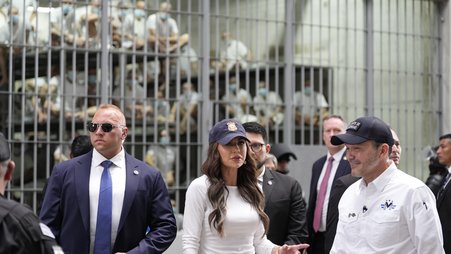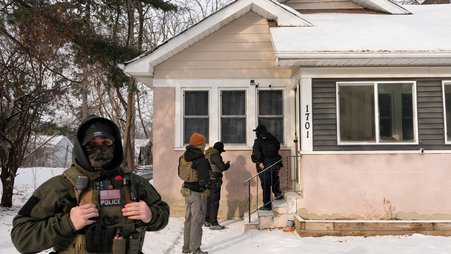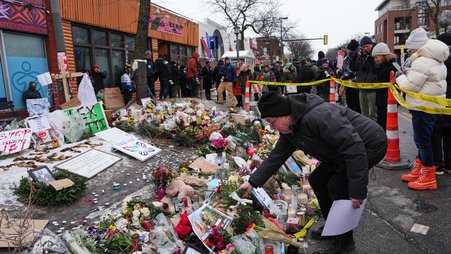The New Yorker published an interview with NSA whistleblower Edward Snowden last night in which he explains why recent claims by Rep. Mike Rogers that he is a Russian spy are “absurd.” Rep. Rogers, who made the allegations on Sunday, did not present any evidence to support his statements and even the FBI reportedly believes Snowden acted alone.
While it’s well-known that Rep. Rogers has a long history of making things up and telling the media, it's less known that his tactics are drawn straight from Richard Nixon’s playbook, when his administration tried to discredit Daniel Ellsberg after he leaked the Pentagon Papers to the New York Times in 1971.
Ellsberg is commonly looked at as the quintessential whistleblower today, but shortly after he leaked the top secret Vietnam War study, the Nixon administration made a concerted effort to paint him as a Soviet spy in the press, using anonymous quotes and non-existent ‘secret’ evidence. (Sound familiar?)
This is from the New York Times on August 11, 1973:
An attorney for Dr. Daniel Ellsberg has chided the Senate Watergate committee for failing to challenge what he called “totally false and slanderous” testimony by the former White House aide, John D. Ehrlichman, suggesting that Dr. Ellsberg delivered copies of the Pentagon papers to the Soviet embassy.
“During his testimony before your committee, Mr. Ehrlichman repeatedly asserted that the Pentagon papers had been given in 1971 to the Soviet Embassy and implied that this might have been done by my client, Dr. Daniel Ellsberg, or with his knowledge,” the attorney, Leonard B. Boudin, who wrote the committee. “These allegations are made of whole cloth; they are totally false and slanderous of Dr. Ellsberg.”
In December 1973, the New York Times reported on Nixon administration’s alleged reasoning for starting the White House Plumbers unit, which conducted several illegal operations against Ellsberg and the Watergate break-in:
One was a fear—nourished in part, some sources said, by Henry A. Kissinger, then the President’s national security adviser—that Daniel Ellsberg, who said he turned over the Pentagon papers to the press, might pass on to the Soviet Union secrets far more important than any information contained in the Pentagon study of the Vietnam war.
Specifically, the sources said, the White House feared that Dr. Ellsberg, a former Rand Corporation and Defense Department official, may have been a Soviet intelligence informer who, in the weeks after publication of the Pentagon Papers in June, 1971, was capable of turning over details of the most closely held nuclear targeting secrets of the United States, which were contained in a highly classified documents known as the Single Integrated Operation Plans, or S.I.O.P.
The second major concern was that a highly placed Soviet agent of the K.G.B., the Soviet intelligence agency, operating as an American counterspy, would be compromised by continued inquiry by the special prosecutor and the Senate Watergate committee into the Ellsberg case. The agent informed his F.B.I. contact that a set of the Pentagon papers had been delivered to the Soviet Embassy in Washington shortly after a Federal court had ordered The Times to stop printing its series of articles on the papers.
In July 1974, the New York Times published a leaked Nixon administration memo written in August 1971 on how they could discredit Ellsberg’s principal lawyer Leonard B. Boudin:
Most of what Daniel Ellsberg has said in public since he acknowledged stealing the Pentagon Papers seems calculated to position him as having responded to an order of morality higher than his onetime solemn undertakings to his country. This rationale, let it be remembered, was earlier employed by atomic spies Klaus Fuchs, David Greenglass, Morton Sobell and Bruno Pontecorvo.
And although there is as yet no conclusive evidence that Daniel Ellsberg acted on specific instructions of the Soviet Union—as did those earlier informants—the distinct possibility remains that Ellsberg’s “higher order” will one day be revealed as the Soviet Fatherland. For history is replete with repetition and notable similarities exist.
…
But in the case of Daniel Ellsberg the benefits of [an acquittal] will accrue to the Soviet Union, the Vietcong and Communist China. For if Boudin is again successful—as he has been so often in the past—the agents of foreign powers will enjoy a liberty of action never before accorded them in the history of our country.
Whether it’s the Nixon administration or anyone else, any allegations made with no proof—and under the veil of secrecy—deserve extreme skepticism and strong pushback from the press. Rep. Mike Rogers' evidence-free smears against Edward Snowden are no different. As Snowden himself told the New Yorker, "It’s not smears that mystify me. It’s that outlets report statements that speakers themselves admit are sheer speculation."
Note: Daniel Ellsberg is on the board of directors of Freedom of the Press Foundation. Edward Snowden will be joining the board in February.




